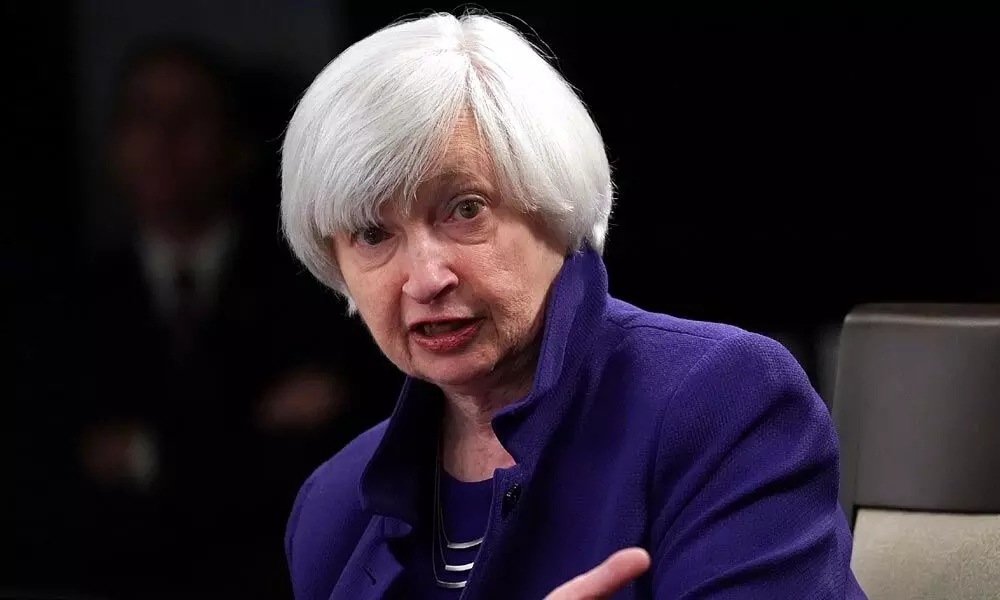Will US fight another trade war with China?
The two phenomena are connected as fundamental aspects of the modern global economy
image for illustrative purpose

If there's a genuine will to crack down on tax minimisation that suggests the Biden administration should be able to find a way. The failed reform attempts of the past decade, however, give reason to doubt that change is on its way. For all the rhetoric out of Washington, corporate tax rates in 2030 are more likely to be lower than higher
If you expected the administration of President Joe Biden to be a return to normalcy on trade issues after the drama of Trump-era tariff battles and tweet diplomacy, Treasury Secretary Janet Yellen has other ideas.
That's because her plans announced Monday to introduce a global minimum corporate tax rate represent quite as much of a shock to the international economic order as Trump's decision to wage trade war on China.
The two phenomena are connected as fundamental aspects of the modern global economy. Corporations have cut operating expenses at the top of their income statements by sending manufacturing offshore to China and other emerging economies where labour costs are lower. At the bottom of their income statements they've done the same with tax expenses, by offshoring their profits to low-tax jurisdictions such as Bermuda, the British Virgin Islands, the Cayman Islands, Ireland, the Netherlands, Luxembourg, Singapore, and Switzerland.
A significant slice of the profitability of the modern multinational corporation depends on those two moves. As we've written, about a third of foreign direct investment in the decade through 2018 went through just seven offshore centres used for tax minimisation. Ireland's four biggest companies, according to an annual ranking by the Irish Times, are the local units of Apple Inc., Alphabet Inc., Facebook Inc. and Microsoft Corp. Over the decade through 2019, the British Virgin Islands and the Cayman Islands alone - with a combined population of about 100,000 people - received about 76 cents of foreign investment inflows for every dollar that went to China.
Follow the money
Such 'investment' came more in the form of corporate inversions and the vesting of intellectual property rights rather than the establishment of genuine new businesses. Even so, it's made a substantial difference to corporate profits, as well as to the revenue that governments have been able to collect from taxing that income.
States would gain about $100 billion a year if reforms were introduced to reduce such activities, according to a study last year by the Organization for Economic Co-operation and Development, a grouping of rich nations. Other estimates are substantially higher: One influential 2018 study calculated the losses at about 10 per cent of the $2.15 trillion in corporate taxes paid globally, rising as high as 20 per cent in the European Union.
Yellen isn't the first to suggest cracking down on this behavior. Indeed, tackling the activity has been a major subject for international groupings such as the Group of 20 and OECD since the early years after the 2008 financial collapse, when it was seen as a significant contributor to the post-crisis deterioration of government budgets.
To say those efforts have come to nothing would be a drastic understatement. Indeed, while ideas have been fruitlessly batted around international talking shops, the real action over the past decade has been in the way governments have given up on attempts to prevent profit leakage and turned to cutting their own tax rates instead. Of 37 OECD members, 24 have cut their corporate tax rates since 2008. Just seven have raised them.
Reversal of fortune
In one sense, that provides a partial solution to the problem. If you can reduce your own tax rates below that of, say, Switzerland (as, for instance, the UK has done) you remove most of the incentive for multinationals to shift their profits there. The trouble is, with Ireland running a 12.5 per cent rate and the likes of the Cayman Islands and British Virgin Islands not taxing corporate profits at all, it's a race to the bottom that rich-country governments can only win by either drastically cutting spending or by shifting more and more of the fiscal burden onto the shoulders of middle- and working-class voters.
Yellen is right to attempt to tackle this, but the challenges to getting anything done remain substantial. Major companies and corporate lobbies have a far harder time dealing with China than they do with Bermuda, the Netherlands and Singapore - but even there, Trump's trade war with Beijing provoked substantial pushback. The richest corporate donors in every developed economy gain enormously from the world's failure to act collectively on this issue. It will be hard bringing low-tax jurisdictions on board, too, given how fundamental tax minimization strategies are to their economies.
America has substantial muscle to get its way in international financial affairs. Every country in the world must observe US sanctions, regardless of the rules in their own country, thanks to the way the dollar has been weaponised by successive administrations over the past decade. Hong Kong's sanctioned Chief Executive Carrie Lam receives her salary in cash because even Chinese-owned banks in Hong Kong won't risk getting on the wrong side of the US Department of Justice.
If there's a genuine will to crack down on tax minimisation that suggests the Biden administration should be able to find a way. The failed reform attempts of the past decade, however, give reason to doubt that change is on its way. For all the rhetoric out of Washington, corporate tax rates in 2030 are more likely to be lower than higher. (Bloomberg)

